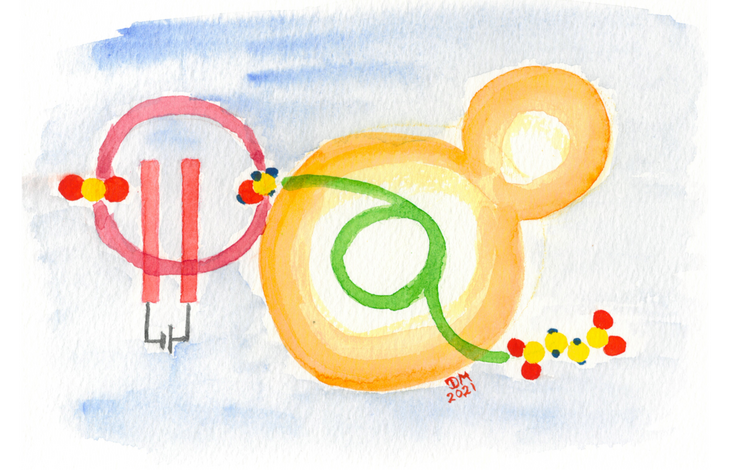CO2-negative bioproduction of value-added organic acids using engineered strains of the established Pichia pastoris yeast
SUPERVISOR: Diethard MATTANOVICH
PROJECT ASSIGNED TO: Manja Mølgaard SEVERINSEN
Valorization of industrial CO2 emissions is a key strategy for mitigating climate change, and holds great potential for sustainable and cost-efficient bioproduction of biochemicals. The VIVALDI project addresses the potential of CO2 valorization, by aiming to convert raw CO2 emissions to value-added organic acids [1].
As part of the VIVALDI project, we aim to design and incorporate optimized metabolic pathways for the bioproduction of the individual organic acids in the established production host Komagataella phaffii (Pichia pastoris) using metabolic engineering methods, including Golden Gate Assembly and CRISPR-Cas9 [2]. The engineered strains will either utilize CO2 directly or methanol and/or formic acid produced from CO2 by electrochemical reduction. The direct utilization of CO2 will be achieved by utilizing the results of previous studies, where functional autotrophy has been introduced in Komagataella phaffii by integration of the Calvin-Benson-Bassham (CBB) cycle [3].
The objective of this doctoral study is to generate Komagataella phaffii strains capable of energetically favorable organic acid production, and to establish the production of said products within small-scale fed-batch bioreactor cultivations. The fermentation processes of the respective C1-substrates into organic acids will be assessed and subsequently optimized to obtain a small-scale high-capacity production with potential for a sustainable industrial bioproduction.

References:
- https://www.vivaldi-h2020.eu/ (accessed 21.03.2022)
- Prielhofer R., et al. GoldenPiCS: A Golden Gate-derived modular cloning system for applied synthetic biology in the yeast Pichia pastoris. BMC Systems Biology 11: 123.
- Gassler T. et al. 2020. The industrial yeast Pichia pastoris is converted from a heterotroph into an autotroph capable of growth on CO2. Nature Biotechnology 38: 210-216.
